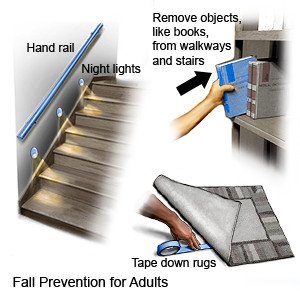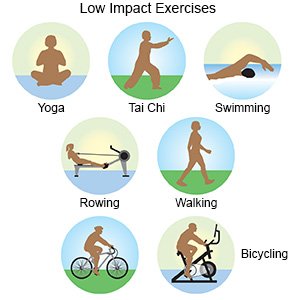Muscular Dystrophy
Medically reviewed by Drugs.com. Last updated on Aug 4, 2025.
Muscular dystrophy (MD) is an inherited disease that causes weakness and loss of muscle. There are several types, such as Duchenne and Becker muscular dystrophy, that affect muscles in different parts of your body. Muscle weakness may lead to difficulty walking. In some cases, it can also lead to difficulty eating, drinking, or breathing.
DISCHARGE INSTRUCTIONS:
Call your local emergency number (911 in the US) or have someone call if:
- You have any of the following signs of a heart attack:
- Squeezing, pressure, or pain in your chest
- You may also have any of the following:
- Discomfort or pain in your back, neck, jaw, stomach, or arm
- Shortness of breath
- Nausea or vomiting
- Lightheadedness or a sudden cold sweat
- You have trouble breathing.
Call your doctor or neurologist if:
- You have a fever.
- You have difficulty having a bowel movement.
- You have more weakness than usual.
- You have trouble swallowing.
- You are depressed or feel you cannot cope with your MD.
- You have questions or concerns about your condition or care.
Related medications
Medicines:
- Medicines are given to decrease pain and inflammation, or relax your muscles. Your healthcare provider may also recommend medicine to help other medical conditions that may result from MD.
- Take your medicine as directed. Contact your healthcare provider if you think your medicine is not helping or if you have side effects. Tell your provider if you are allergic to any medicine. Keep a list of the medicines, vitamins, and herbs you take. Include the amounts, and when and why you take them. Bring the list or the pill bottles to follow-up visits. Carry your medicine list with you in case of an emergency.
Follow up with your healthcare provider as directed:
You may need to return for more tests. Your healthcare provider may need to check you regularly for heart, lung, or spinal problems. You may be referred to a pain specialist. You may also be referred to a genetic counselor to help you learn about more about MD. Write down your questions so you remember to ask them during your visits.
Manage your symptoms:
- Do breathing exercises as directed. Deep breathing can help you breathe more easily. Breathe out with pursed or puckered lips. Use your diaphragm to breathe. Put one hand on your abdomen and breathe in, causing your hand to move outward or upward. This helps make more room so your lungs can take in more air. Your healthcare provider may teach you or family members how to watch for signs of breathing problems.
- Learn safe ways to eat and swallow. Talk with your healthcare provider if you have trouble swallowing. He or she will show you safer ways to swallow and teach you which foods and liquids are safe to eat and drink. He or she may also recommend soft foods or thick liquids to make it easier to swallow. In some cases, you may receive nutrition through an IV or tube into your stomach.
- Stay safe at home and when you walk. Use a 4-pronged cane or walker to help you keep your balance when you walk. Remove loose carpeting from the floor to reduce your risk for a fall. Use chairs with side arms and hard cushions to make it easier to get up or out of a chair. Put grab bars on the walls beside toilets and inside showers and bathtubs. These will help you get up and help prevent falls. You may want to put a shower chair inside the shower.

- Ask about vaccines. The flu and pneumonia vaccines may help reduce your risk for lung infections. Ask your healthcare provider when to get these shots.
- Maintain a healthy weight. A healthy weight may help prevent too much stress on your muscles. It may also decrease your risk for breathing problems. Exercise and a healthy eating plan can help you maintain a healthy weight. Ask your healthcare provider what a healthy weight is for you. Also ask about an exercise program and eating plan that are right for you.
- Exercise as directed. You will need to work with an exercise specialist to prevent injury or muscle damage. Low-impact exercise, such as swimming, can help your heart and muscles work better and decrease tiredness. Your healthcare provider may also recommend strength training, such as weightlifting. Drink liquids before, during, and after exercise to prevent dehydration. Stop exercising if you have shortness of breath. Do not exercise again if you feel weaker after exercise, or your muscles are sore or heavy for up to 48 hours after exercise.

- Use a sleeping pad or mattress that can help you get a restful sleep. It may be difficult to find a comfortable position for sleep. Ask your healthcare provider what pad or mattress you can use to help you be more comfortable.
© Copyright Merative 2025 Information is for End User's use only and may not be sold, redistributed or otherwise used for commercial purposes.
The above information is an educational aid only. It is not intended as medical advice for individual conditions or treatments. Talk to your doctor, nurse or pharmacist before following any medical regimen to see if it is safe and effective for you.
Learn more about Muscular Dystrophy
Treatment options
- Medications for Familial Periodic Paralysis
- Medications for Muscular Dystrophy
- Medications for Myopathy
Care guides
Symptoms and treatments
Medicine.com guides (external)
Further information
Always consult your healthcare provider to ensure the information displayed on this page applies to your personal circumstances.
